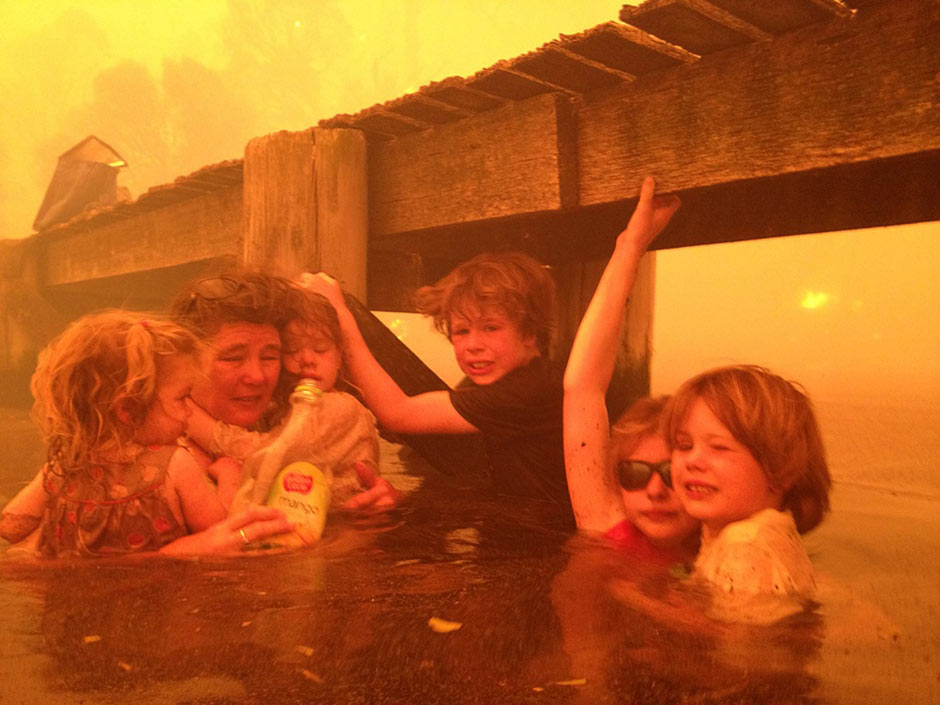Hey! Welcome back to Extreme Weather and Climate Change. Good that you're still reading :)
According to IPCC Fourth Assessment Report, an increase in severe events regarding temperature (heat waves, wildfires, cold waves) and precipitation (storms and hurricanes, droughts and floods) is expected.
On the next set of posts, we will discuss each of these events separately. Today's special:
Heat waves and wildfires
 |
| A cooling dog |
From a global increase of average temperatures, we can obviously expect more frequent heat waves being these warmer and longer in time.
An example in this regard is the European heat wave of 2003 (This heat wave deserves a special post. Coming soon.)
My country (Spain) is particularly vulnerable to this phenomenon and I will also devote a full post to this later on (home is home after all).
Let's check out some references:
“Climate-change projections suggest that European summer heatwaves will become more frequent and severe during this century consistent with the observed trend of the past decades. The most severe impacts arise from multi-day heatwaves, associated with warm night-time temperatures and high relative humidity. Here we analyse a set of high-resolution regional climate simulations and show that there is a geographically consistent pattern among climate models: we project the most pronounced changes to occur in southernmost Europe for heatwave frequency and duration, further north for heatwave amplitude and in low-altitude southern European regions for health-related indicators. For the Iberian peninsula and the Mediterranean region, the frequency of heatwave days is projected to increase from an average of about two days per summer for the period 1961–1990 to around 13 days for 2021–2050 and 40 days for 2071–2100.” (E.M. Fischer and C. Schär, 2010).
“Under high emission scenarios every second summer in Europe will be as hot or even hotter than 2003 by the end of the twenty-first century. In southern Europe, these changes are projected to occur even earlier (in Spain by the 2020s).” (Perry et al., 2000).
Good! Beach weather! Well... Not really. There are plenty of studies showing the effects that heat waves have in health (not to talk about biodiversity, economy, etc). As an example, Baccini et al., 2008 show the relation between high temperatures and mortality in 15 european cities. And again E.M. Fischer and C. Schär, 2010 :"In terms of health impacts, our projections are most severe for low-altitude river basins in southern Europe and for the Mediterranean coasts, affecting many densely populated urban centres. We find that in these locations, the frequency of dangerous heat conditions also increases significantly faster and more strongly, and that the associated geographical pattern is robust across different models and health indicators."
It is true that in a warming planet, deaths related to cold waves could also be reduced, but even if it is restricted to the USA territory, this paper by Medina-Ramon, M ; Schwartz, J, 2007, shows that heat waves deaths increase by 5.74%, while cold wave-related do only 1.59%. In other words: heat waves kill 3.6 times more than cold waves.
As they write in their conclusions:
"These findings suggest that increases in heat-related mortality due to global warming are unlikely to be compensated for by decreases in cold-related mortality and that population acclimatisation to heat is still incomplete."
See also Kalkstein and Greene, 1997 :"We suggest that the combined impacts of these factors will only partially offset the very large increases estimated by the GCMs, and a substantial rise in weather-related mortality is the most likely outcome of a global warming"
Wildfires
 |
| The dramatic moment a family fleeing Australia's wildfires shelter in the water to scape the flames, 2009 (The Guardian) |
Naturally, an increase in frequency, length and intensity of heat waves will favor wildfires and their expansion. For example, an increase of around 50% is expected for 2050 in USA.
The serious wildfires in southeastern Australia on 2009, in Rusia, or Israel, in 2010 are clear examples of something that seems more and more usual due to global warming.
No comments:
Post a Comment